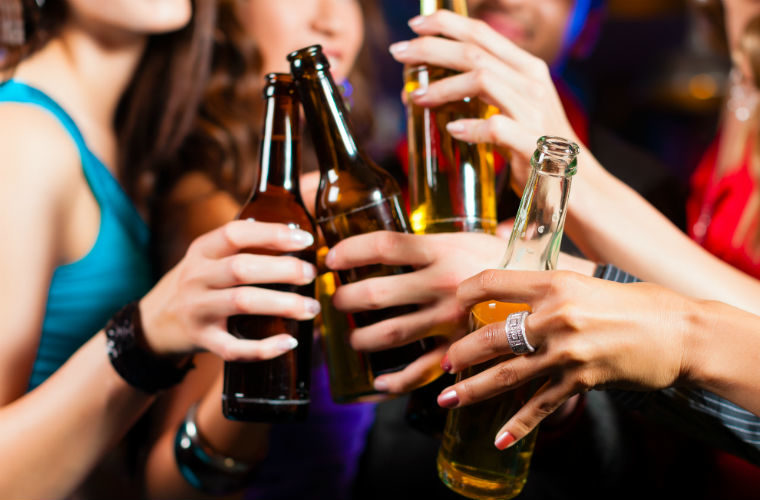How Alcohol Affects Teenage Minds
Every year, more than 140,000 people die due to excessive alcohol abuse and more than 4,000 of those individuals are underaged. Those who start consuming alcohol at ages 14 or under tend to later gain an unhealthy addiction which will leave negative long-term effects in their everyday lives.
Some of those long-term effects include drunken accidents, violent behavior, gaining mental illnesses, and others. It can impair memory and learning, damaging the brains of young ones who start developing wrongly and breaking them down completely.
When students at Prairie were asked if they know anyone who has been affected negatively by alcohol, one student shared, “I have been. It was sad and I wasn’t in a good place.” Alcohol is a method teenagers seem to resort to when they are feeling down and hopeless, or sometimes even use it just for fun. Some students talk about how they “use it to escape reality,” and that they do it voluntarily.
Other students like Chailya Robinson, a sophomore at Prairie, shared how she experienced a situation in which a loved one had been involved in a drunken accident on the road. Parents, cousins, and other relatives can fall victim to these terrific tragedies. Some often gain trauma that can change them for the worst, making it harder to get through to them.
These effects can also bleed into everyday school lives, too. Signs that someone is struggling with addiction can include sudden higher absence rates, dropping grades, and lack of participation or social awareness. Maddie Boston, a junior at Prairie, speaks of her experience with something like this. “I knew a friend that was struggling and I couldn’t really tell at first. But then she stopped attending school and not responding to anyone else and I later found out that she passed out at home most of the time from alcohol. Her parents didn’t even notice.”
The most used form of consuming alcohol by minors is binge drinking. It’s when someone takes in multiple shots in under two hours, bringing your alcohol percentage above 0.8 percent. This method is 90 percent of what teenagers are presumed to use and makes sense since it’s in the stage of their lives when they’re experiencing new things, going out with friends to parties, and doing things that they probably shouldn’t be doing. This is where the addiction starts.
It can easily also start when being in situations where you feel pressured to drink by friends or others. Mentioning old and toxic friends, Anonymous said they felt like they were pressured into drinking by them. It’s hard to get out of these situations without feeling like a letdown to others who are trying to have “fun” with alcohol. The disappointment in your stomach when you see they’re disappointed or start to get angry, if they’re bad friends, can be hard to get rid of.
After polling 50 students from Prairie when asked, “Do you know anyone that has struggled with an alcohol addiction?” 22% of the students said “No” but the other 78% said “Yes.” This evidence shows how alcohol abuse is more likely in a population than no alcohol addiction at all.
In the end, we asked these students for some ways they think we should start preventing alcohol and they provided. Someone suggested it might be a good idea to “hide it from kids because as young as we are, the sight of alcohol gives us immature kids ideas of negative things.” The list goes on and on, saying things like getting people into therapy, presenting it and talking about how bad alcohol can be, educating ourselves, and even staying away from people who have those bad habits.
Some were also aware of the “damage in the brain that destroys cells and the liver.” But everyone should be aware of this fact, as it should be a goal to spread awareness and make the destruction from alcohol abuse known to all students.
After hearing multiple students’ different answers to how they think alcohol affects the teenage brain and their first-hand experiences, one can conclude that our brains aren’t fully developed and aren’t able to take in all the alcohol without destroying our insides and messing with us physically and mentally. Addiction is a draining process to go through and advocating for stopping this spread of alcohol can make the world more peaceful.








